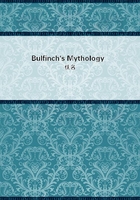
第78章
With his twin brother Zethus he was exposed at birth on Mount Cithaeron, where they grew up among the shepherds, not knowing their parentage. Mercury gave Amphion a lyre, and taught him to play upon it, and his brother occupied himself in hunting and tending the flocks. Meanwhile Antiope, their mother, who had been treated with great cruelty by Lycus, the usurping king of Thebes, and by Dirce, his wife, found means to inform her children of their rights, and to summon them to her assistance.
With a band of their fellow-herdsmen they attacked and slew Lycus, and tying Dirce by the hair of her head to a bull, let him drag her till she was dead (the punishment of Dirce is the subject of a celebrated group of statuary now in the Museum at Naples). Amphion, having become king of Thebes fortified the city with a wall. It is said that when he played on his lyre the stones moved of their own accord and took their places in the wall.
In Tennyson's poem of Amphion is an amusing use of this story:
"Oh, had I lived when song was great, In days of old Amphion, And ta'en my fiddle to the gate Nor feared for reed or scion!
And had I lived when song was great, And legs of trees were limber, And ta'en my fiddle to the gate, And fiddled to the timber!
"'Tis said he had a tuneful tongue, Such happy intonation, Wherever he sat down and sung He left a small plantation;Whenever in a lonely grove He set up his forlorn pipes, The gouty oak began to move And flounder into hornpipes."LINUS
Linus was the instructor of Hercules in music, but having one day reproved his pupil rather harshly, he roused the anger of Hercules, who struck him with his lyre and killed him.
THAMYRIS
An ancient Thracian bard, who in his presumption challenged the Muses to a trial of skill, and being overcome in the contest was deprived by them of his sight. Milton alludes to him with other blind bards, when speaking of his own blindness (Paradise Lost, Book III.35).
MARSYAS
Minerva invented the flute, and played upon it to the delight of all the celestial auditors; but the mischievous urchin Cupid having dared to laugh at the queer face which the goddess made while playing, Minerva threw the instrument indignantly away, and it fell down to earth, and was found by Marsyas. He blew upon it, and drew from it such ravishing sounds that he was tempted to challenge Apollo himself to a musical contest. The god of course triumphed, and punished Marsyas by flaying him alive.
MELAMPUS
Melampus was the first mortal endowed with prophetic powers.
Before his house there stood an oak tree containing a serpent's nest. The old serpents were killed by the servants, but Melampus took care of the young ones and fed them carefully. One day when he was asleep under the oak, the serpents licked his ears with their tongues. On awaking he was astonished to find that he now understood the language of birds and creeping things. This knowledge enabled him to foretell future events, and he became a renowned soothsayer. At one time his enemies took him captive and kept him strictly imprisoned. Melampus in the silence of night heard the wood-worms in the timbers talking together, and found out by what they said that the timbers were nearly eaten through, and the roof would soon fall in. He told his captors and demanded to be let out, warning them also. They took his warning, and thus escaped destruction, and rewarded Malampus and held him in high honor.
MUSAEUS
A semi-mythological personage who was represented by one tradition to be the son of Orpheus. He is said to have written sacred poems and oracles. Milton couples his name with that of Orpheus in his Il Penseroso:
"But, oh, sad virgin, that thy power Might raise Musaeus from his bower, Or bed the soul of Orpheus sing Such notes as warbled to the string, Drew iron tears down Pluto's cheek, And made Hell grant what love did seek."